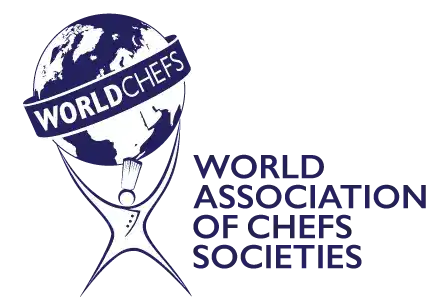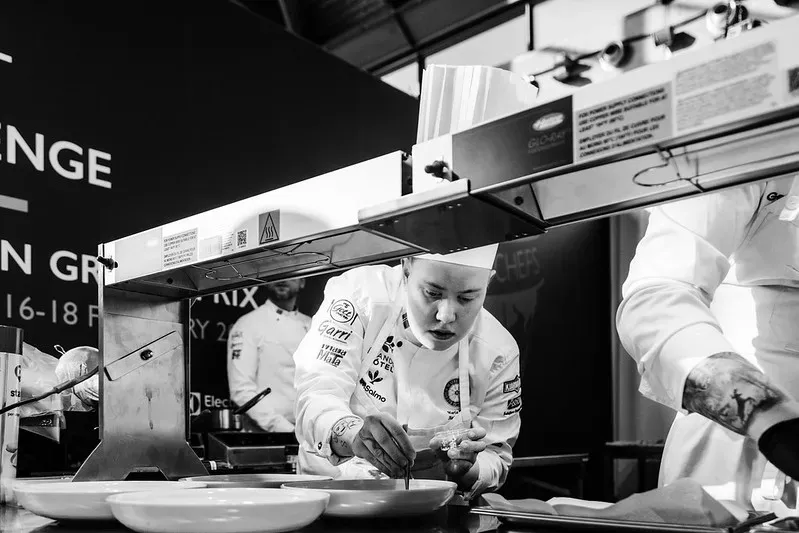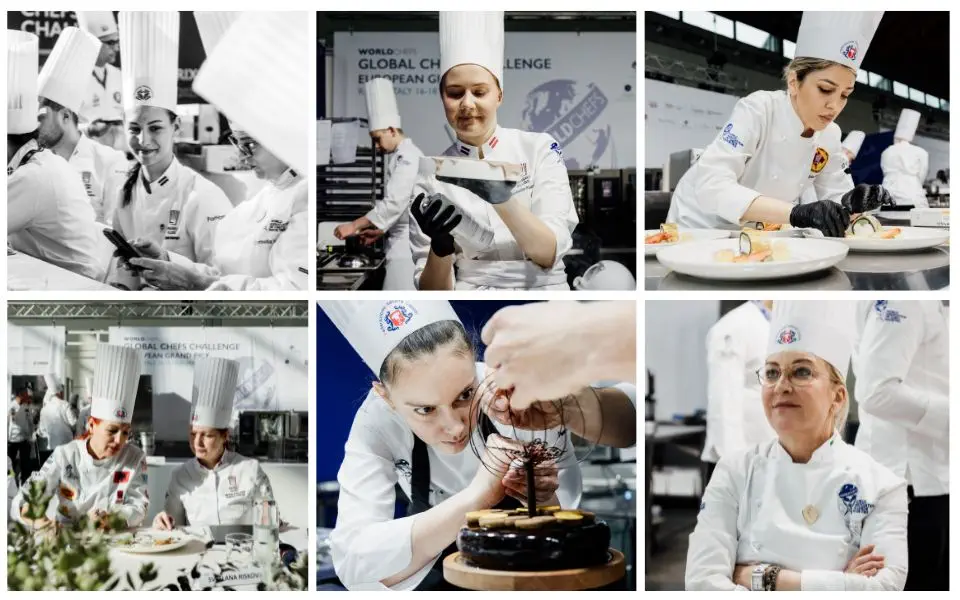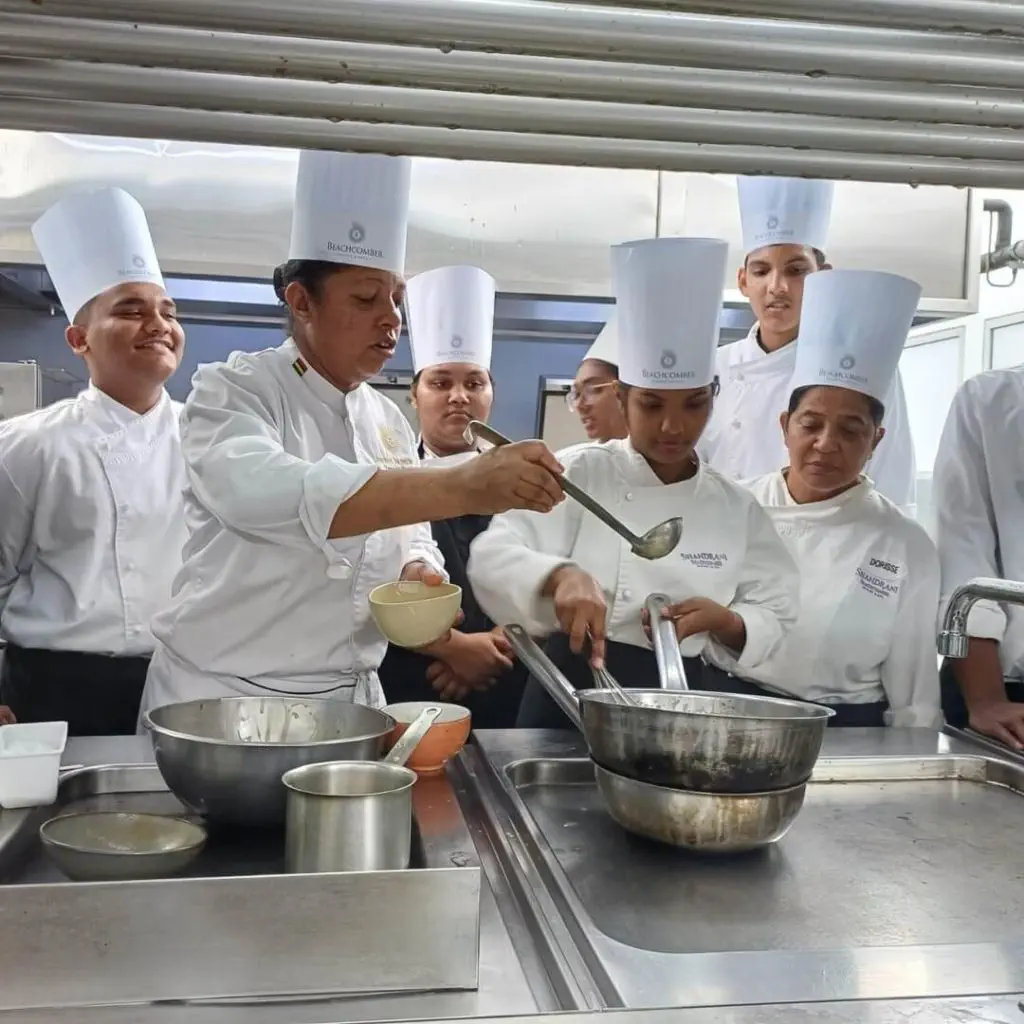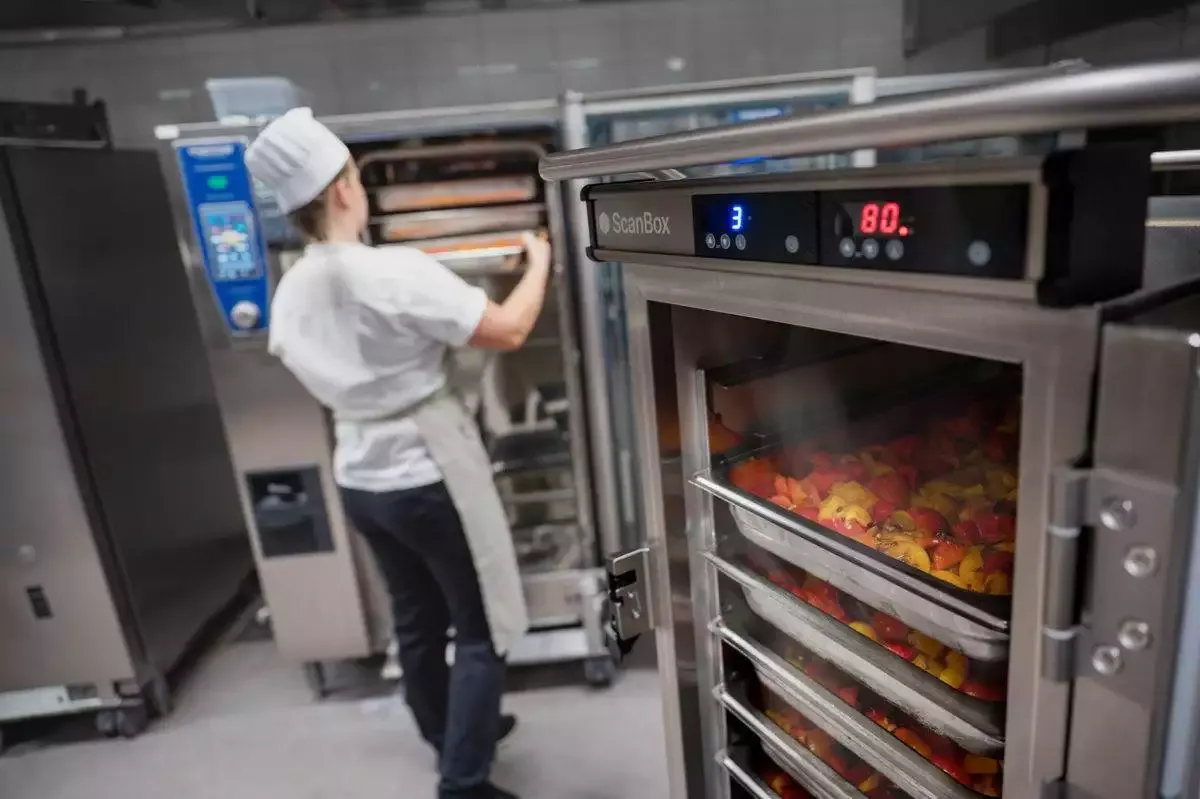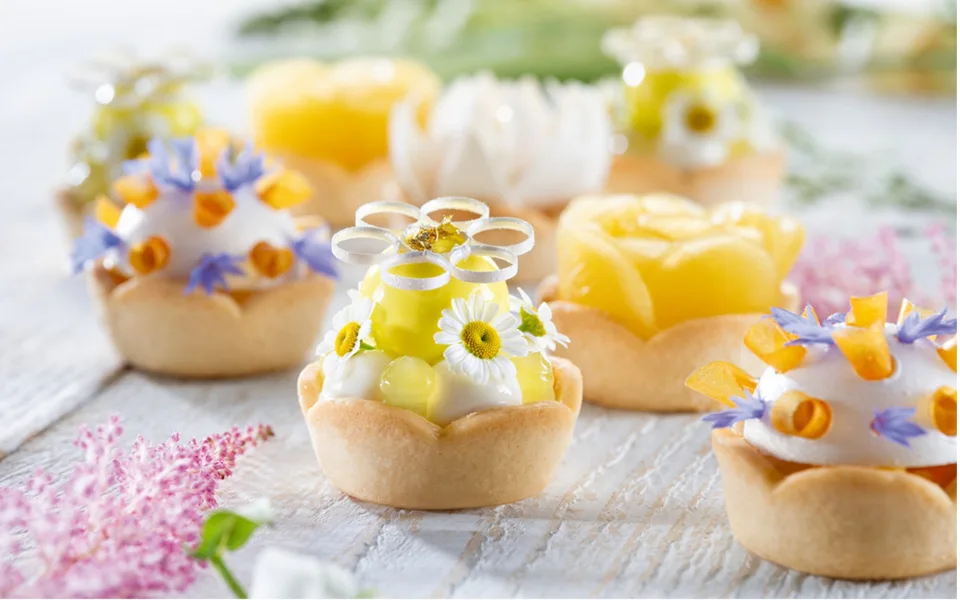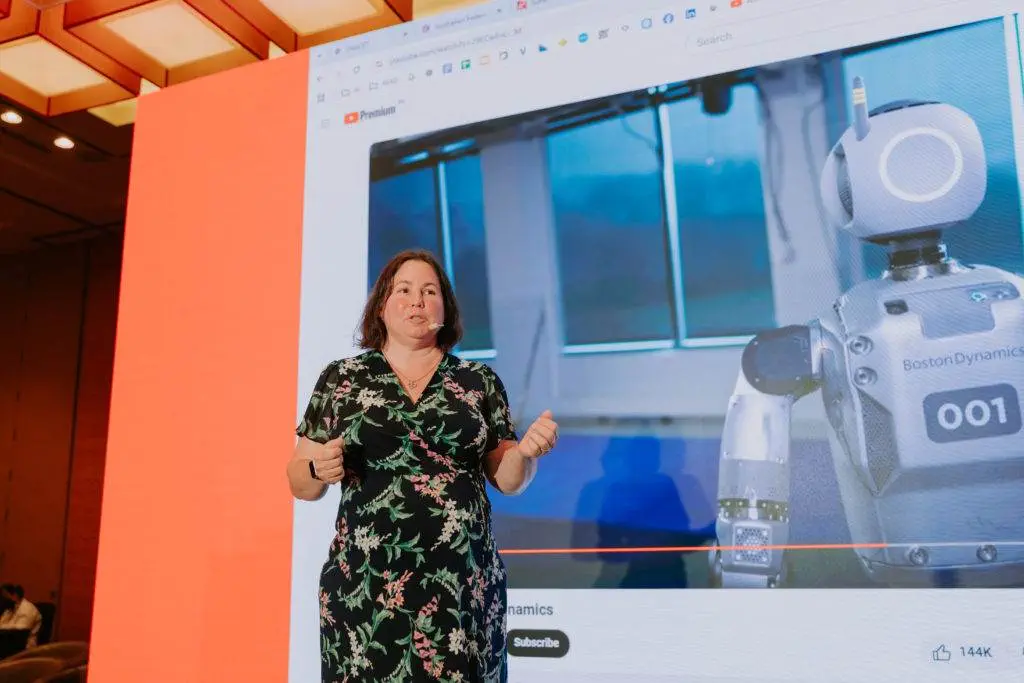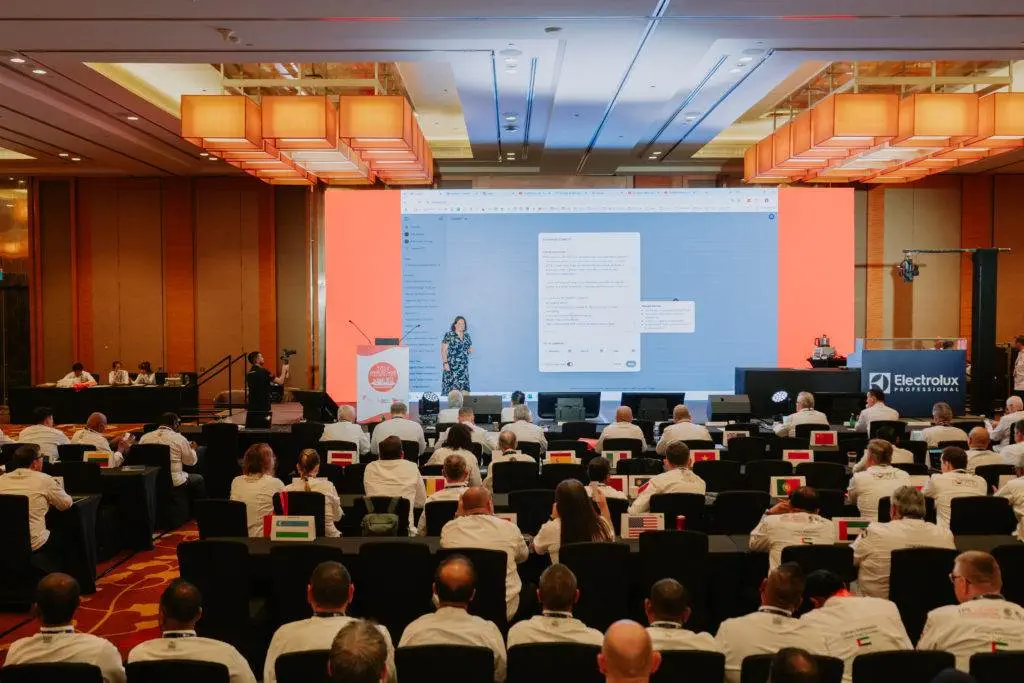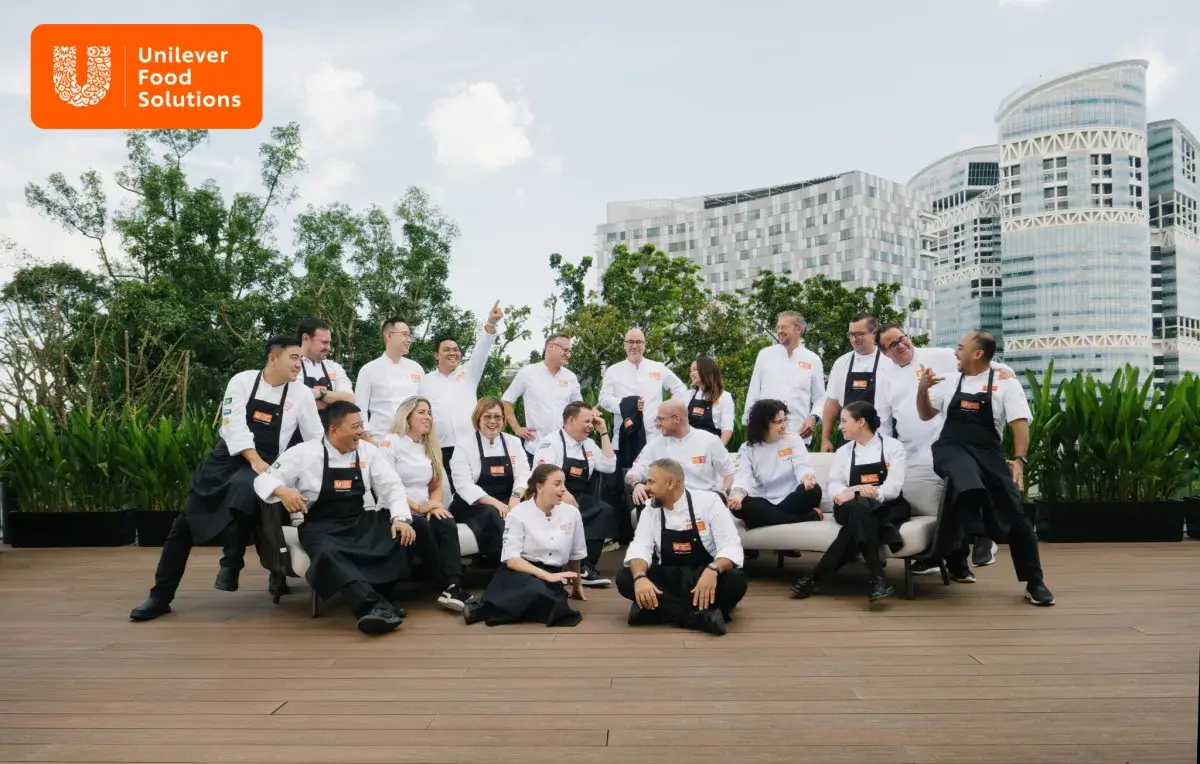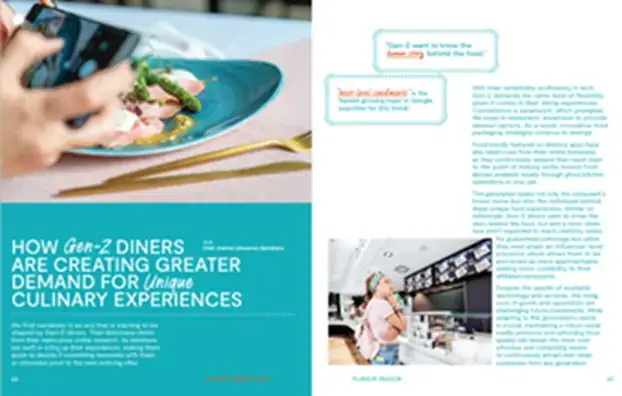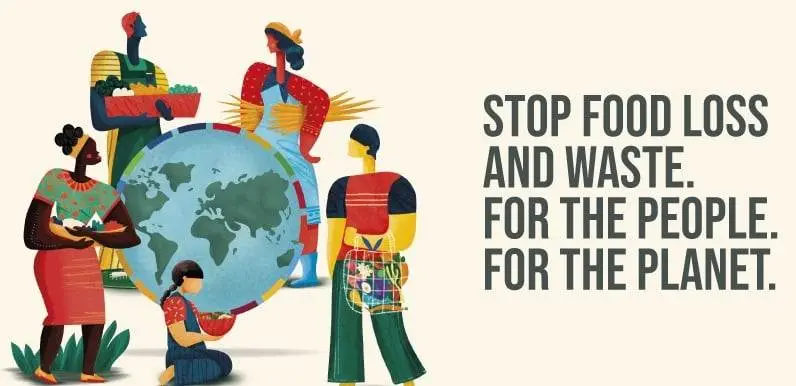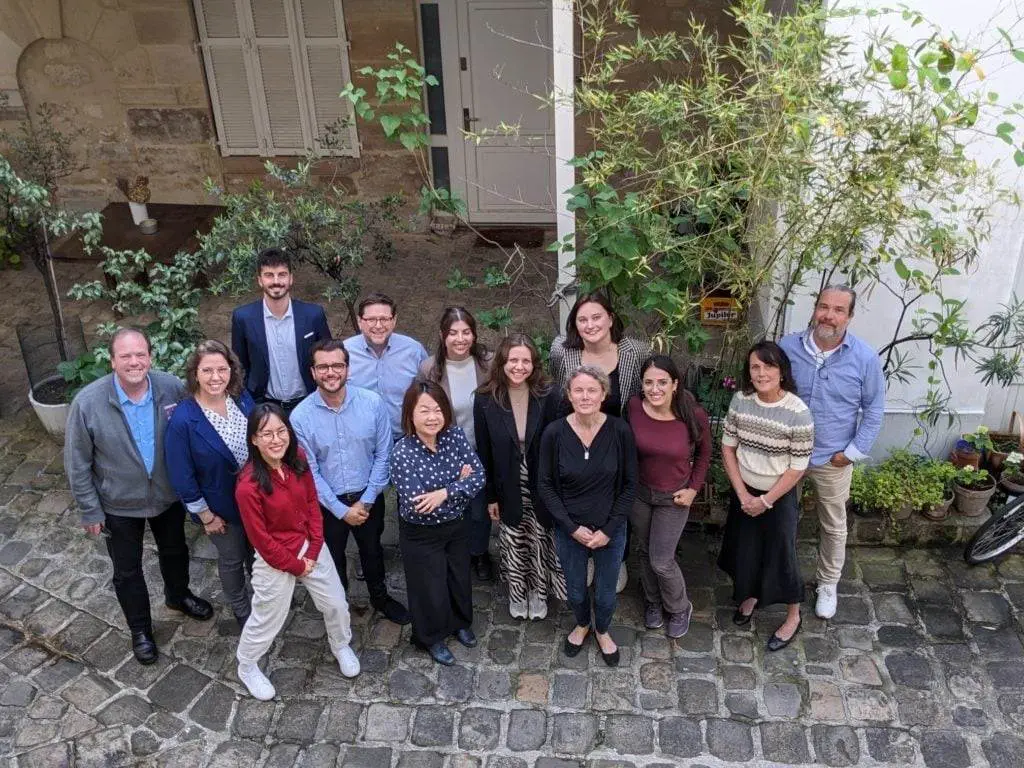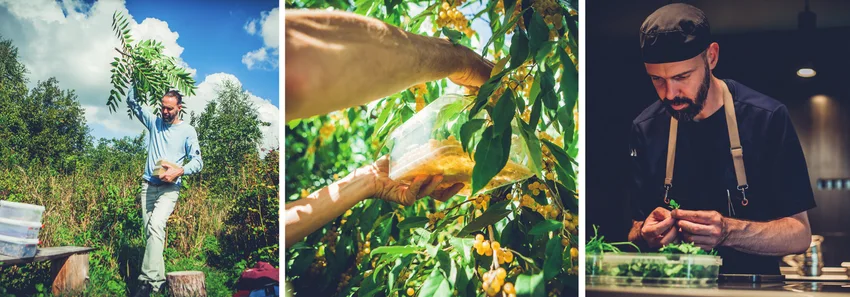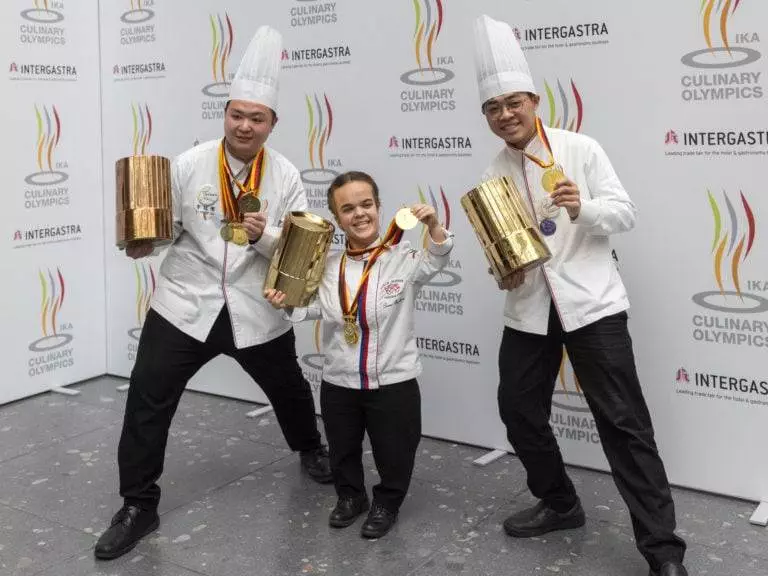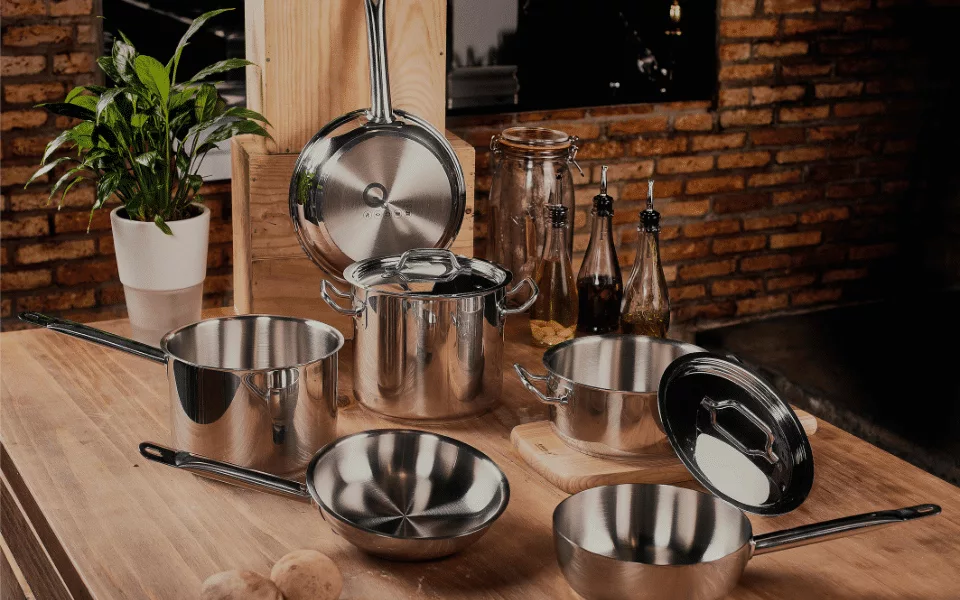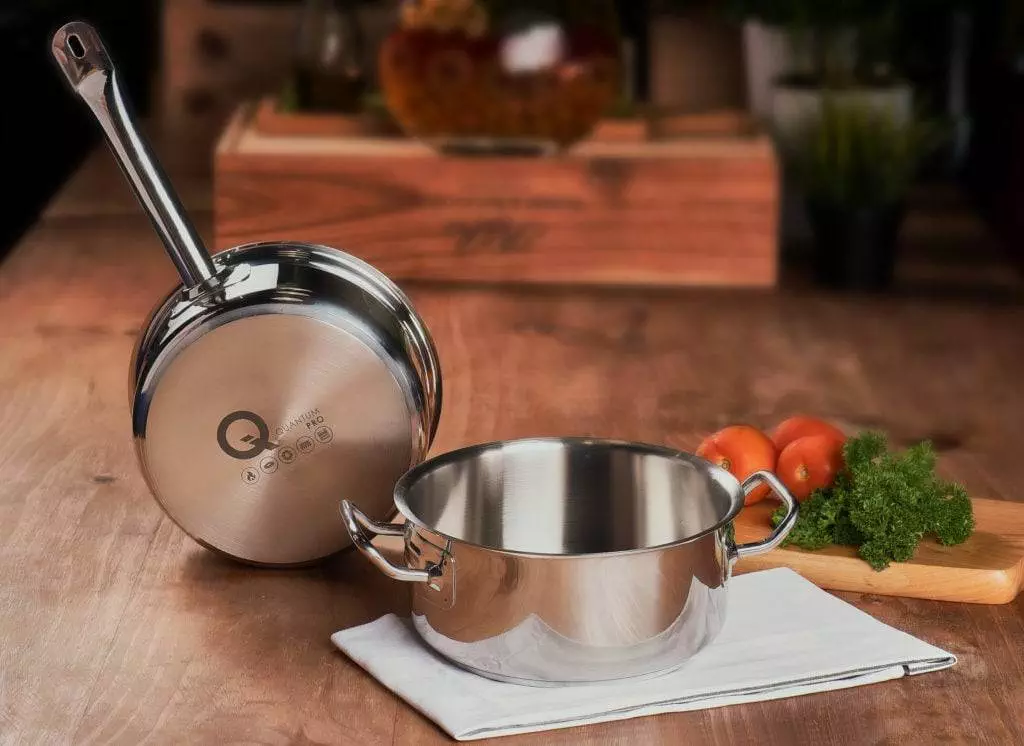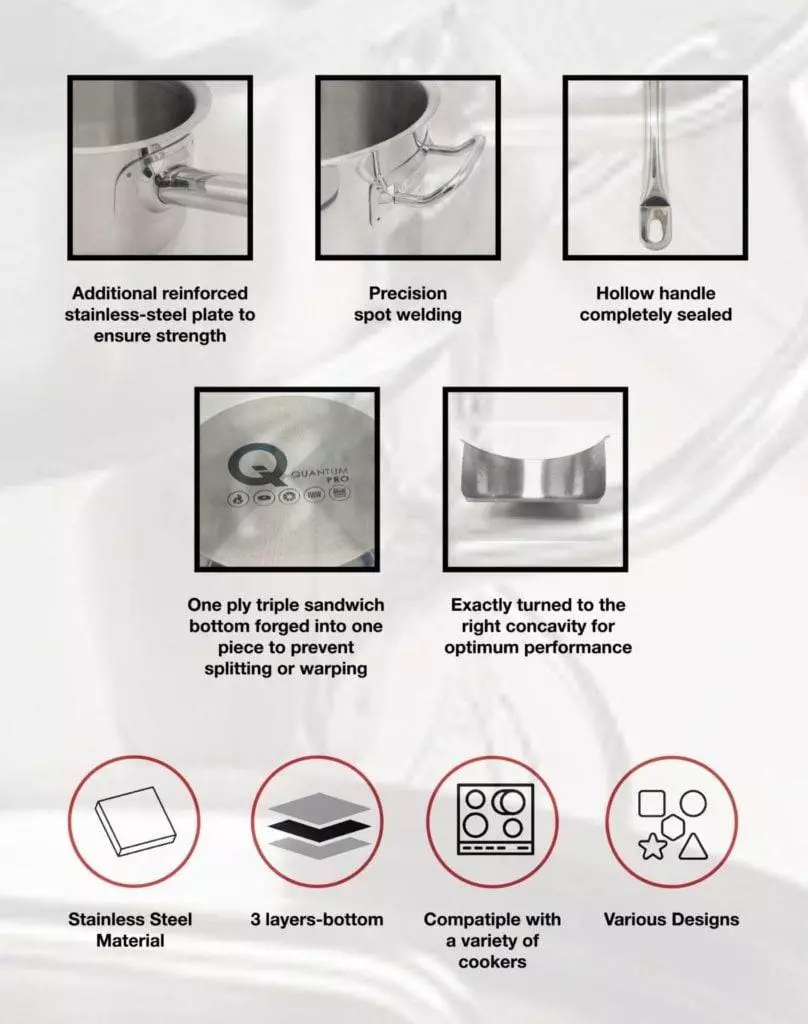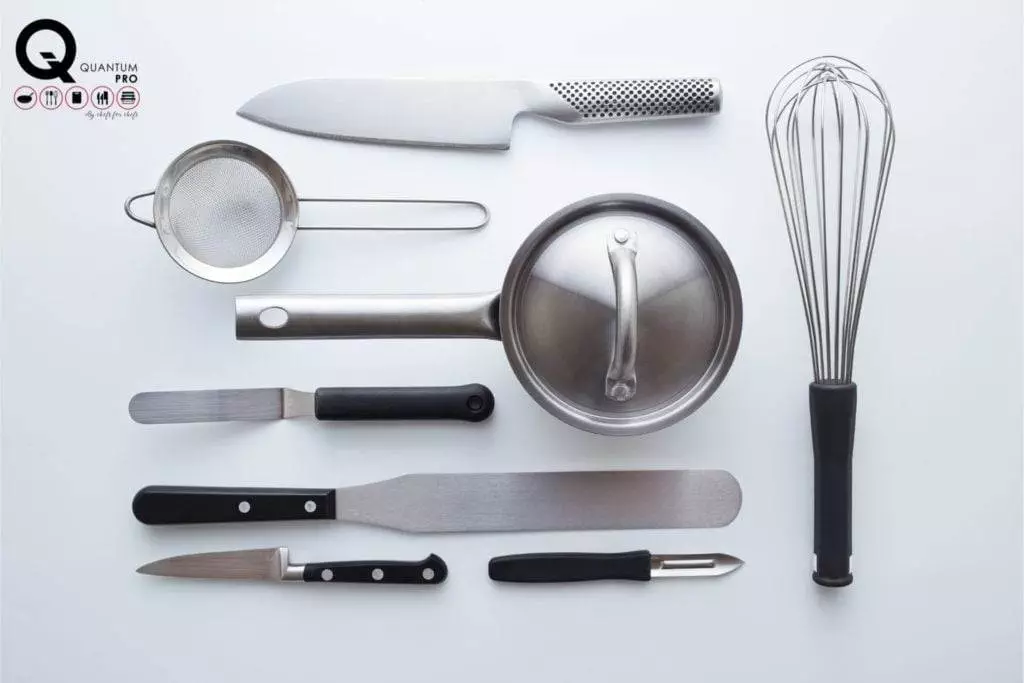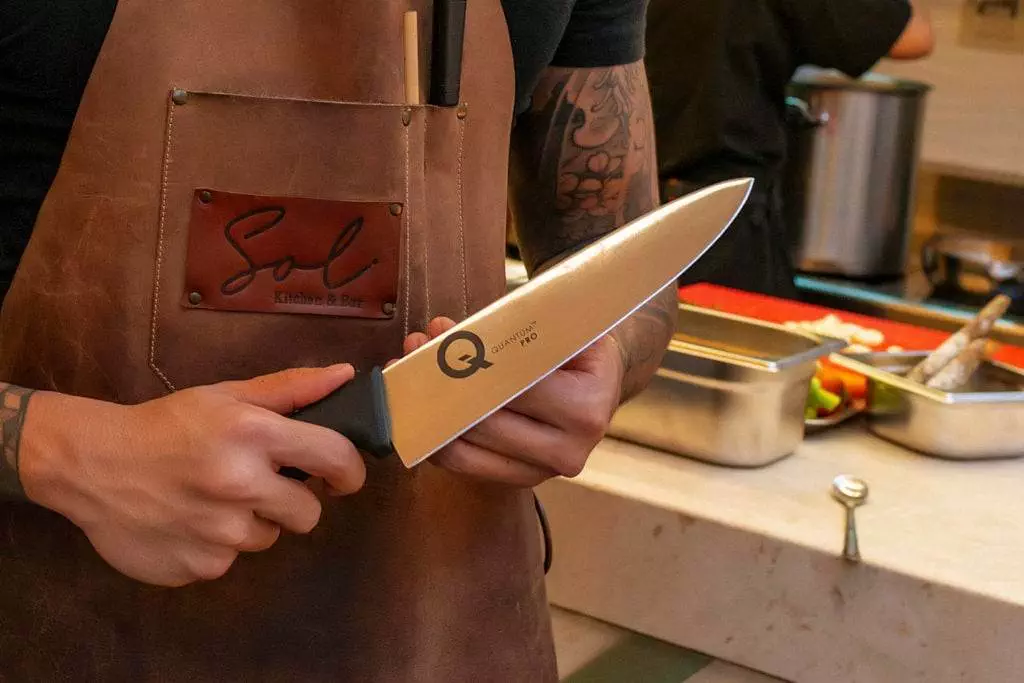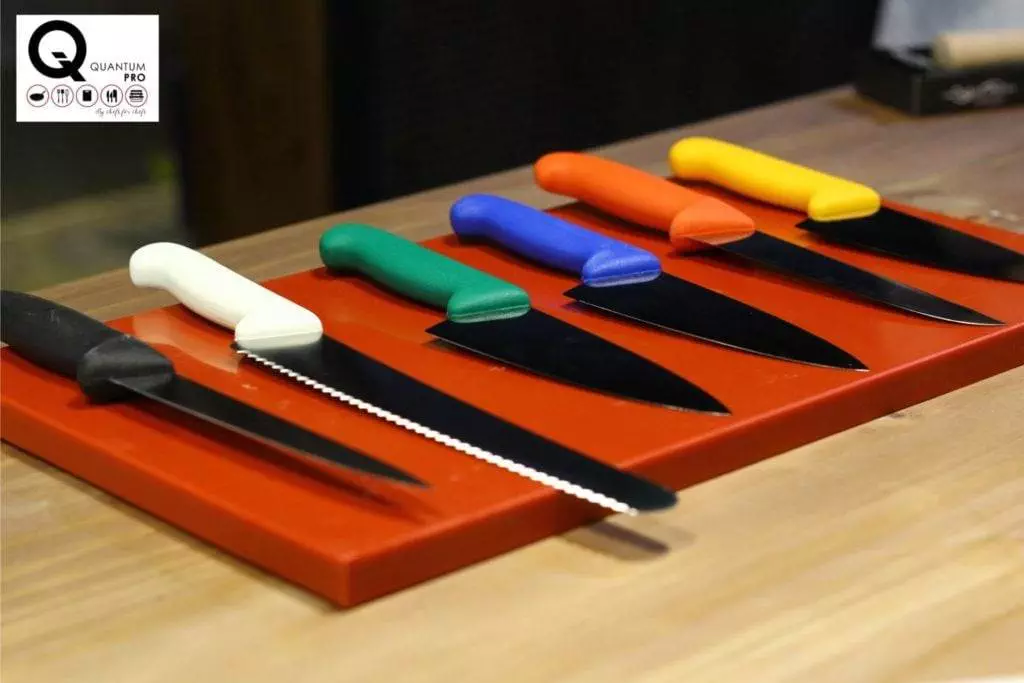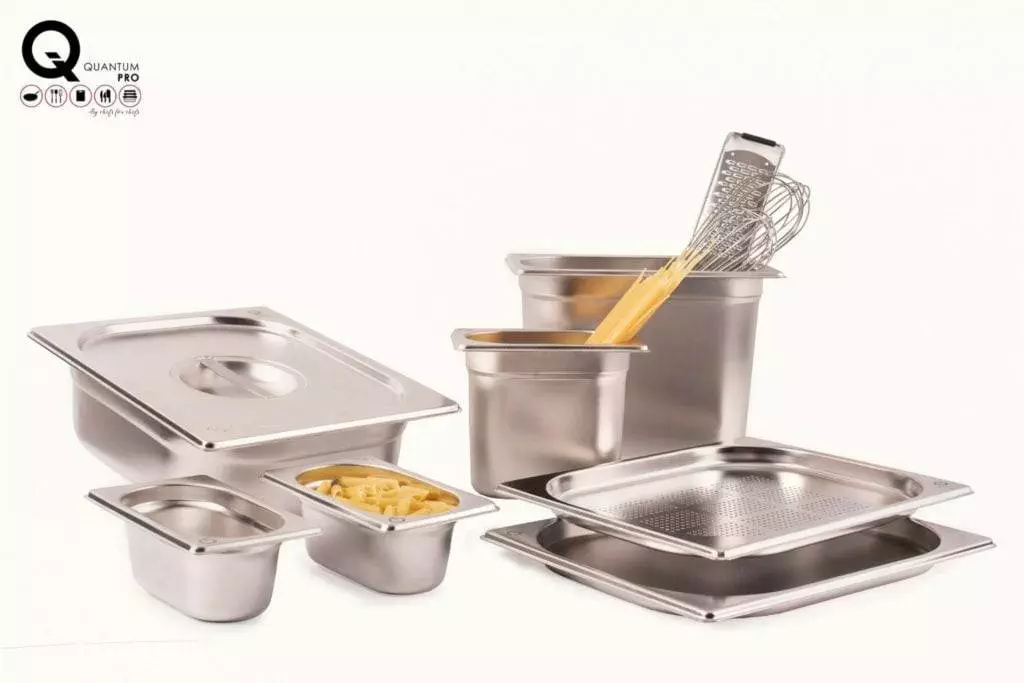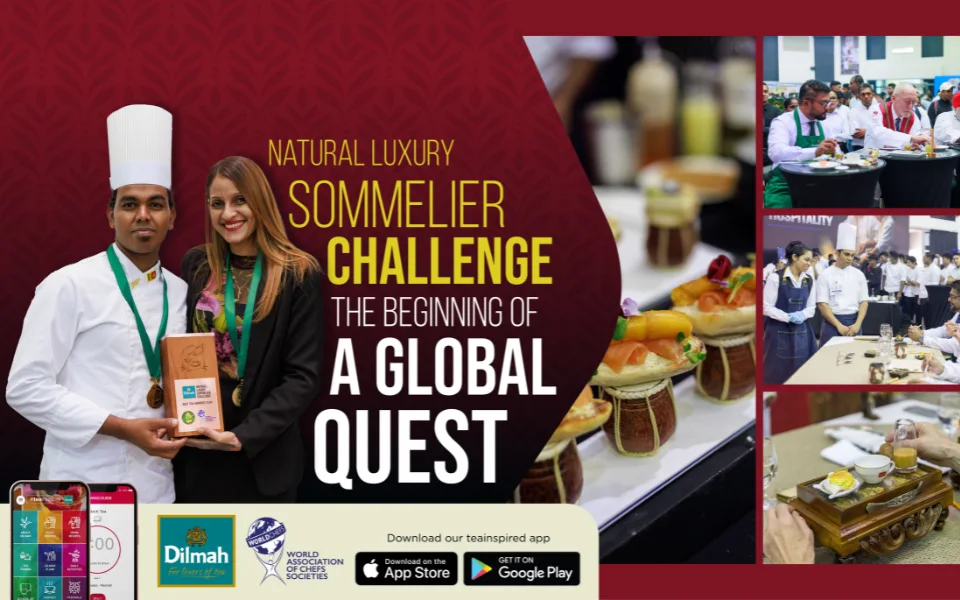What does the word collaboration mean to you? We’re seeing it increasingly often, especially when it comes to social change and impact.
It comes from the Latin com “with” + laborare “to work”. And while we might think of it as “working together”, it is also something that happens “with work”.
Transformation is a process, and collaboration is an essential piece of the puzzle. It’s also a process, too. It usually starts with an idea, a conversation, and a common purpose. But it needs real commitment, discipline, and investment to go beyond a buzzword.
In this article, we’ll feature projects and ways for chefs to make an ongoing commitment to positive change, with opportunities to collaborate towards a food-secure future. Are you ready to do the work, hand-in-hand?
1. Apply for the World Food Forum’s Young Chefs Programme
The World Food Forum (WFF)’s Young Chefs Programme (YCP) equips chefs (aged 18-35) with skills, knowledge, and networks to take a leading role in transforming agrifood systems through culinary practices. From advancing better nutrition to promoting food security and biodiversity, its ultimate goal is to create leaders who can inspire and guide other chefs to advocate for more sustainable and healthier consumption habits. Each participant will be paired with a mentor from Worldchefs’ network.
Submit your application by 16 October, and to explore how Worldchefs is collaborating with the World Food Forum, read more here.
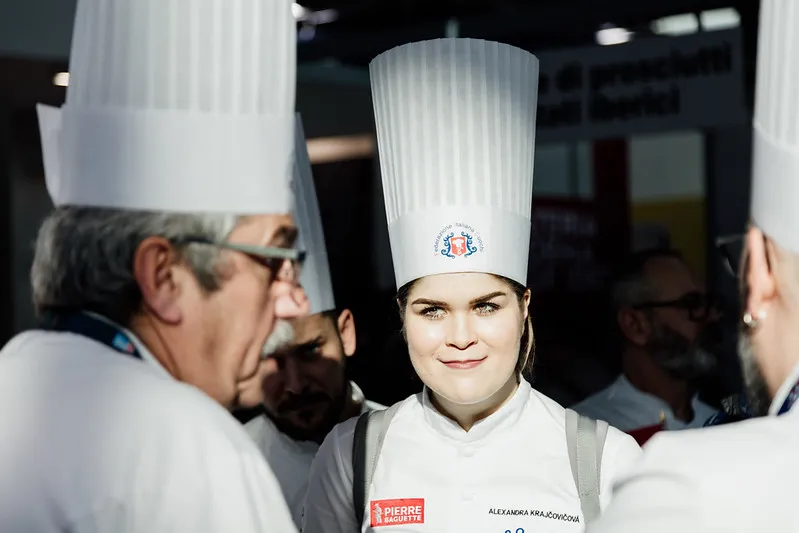
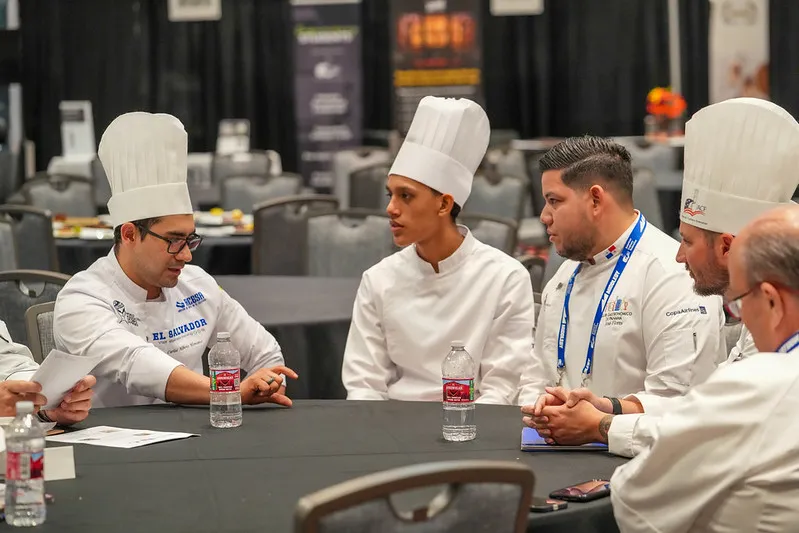
2. Work with your community to celebrate International Chefs Day
Whether it’s on or after October 20th, International Chefs Day is a great reminder of how chefs can collaborate with their local communities, through education, to help build a healthier future for children around the world.
Download the toolkit now at worldchefs.org/internationalchefsday.
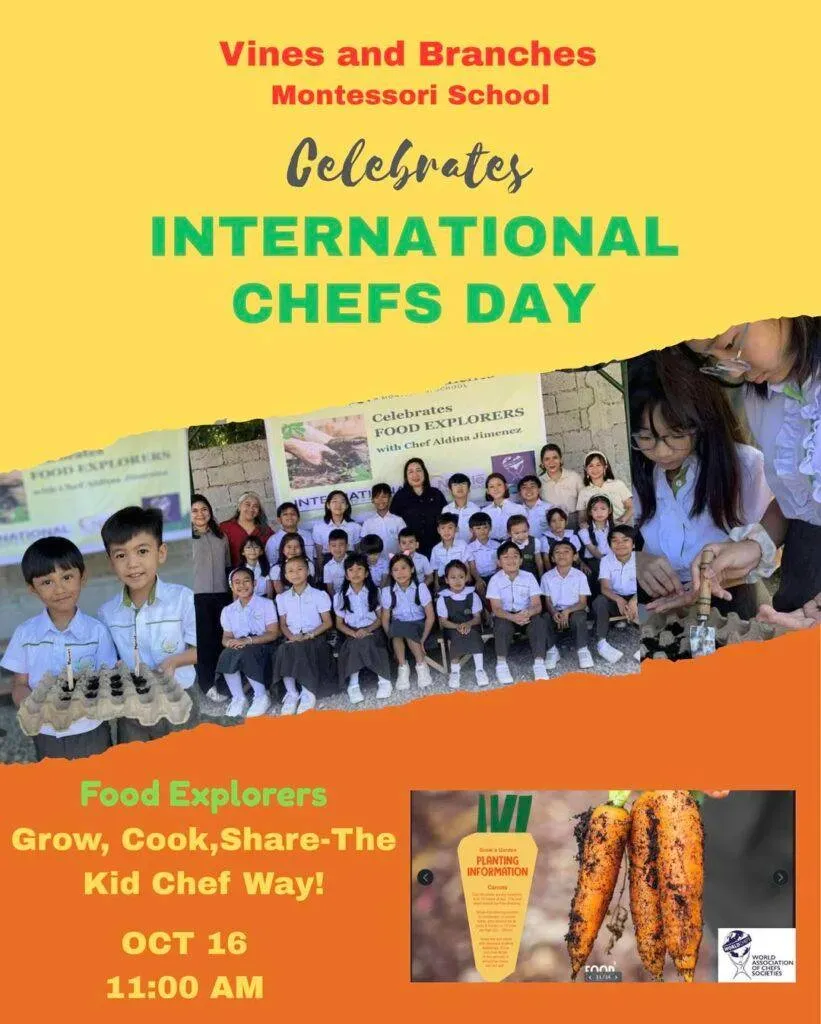
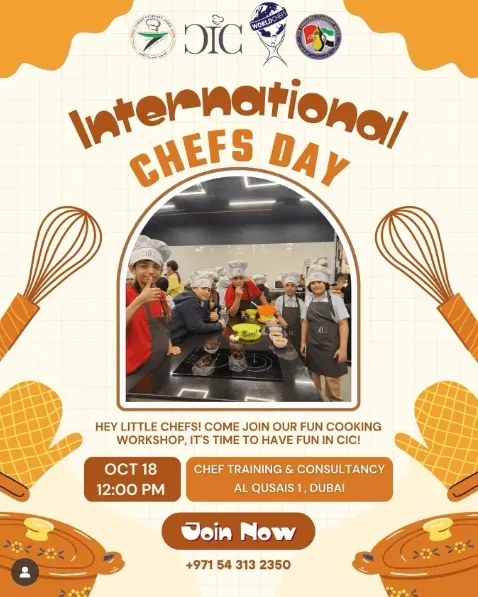
3. Get involved with World Central Kitchen
Worldchefs and World Central Kitchen (WCK) are joining forces to proactively position chefs to play a powerful role in disaster response across the globe. This new collaboration will enable dedicated culinary professionals affiliated with Worldchefs’ member associations to be appointed to join WCK’s Chef Corps.
The Chef Corps global network is made up of prominent culinary leaders on standby to assist with the nonprofit organization’s work. When on the ground with WCK, members contribute to providing hot, nourishing meals to people impacted by natural disasters and humanitarian crises.
The two organizations also identified additional opportunities to cooperate during times of need. Worldchefs’ network of accredited culinary schools, for example, can play a role in disaster response. WCK is also able to offer Worldchefs’ members learning and skill development on disaster preparedness.
Learn more about how Worldchefs and WCK are collaborating here and stay tuned for upcoming calls to action.
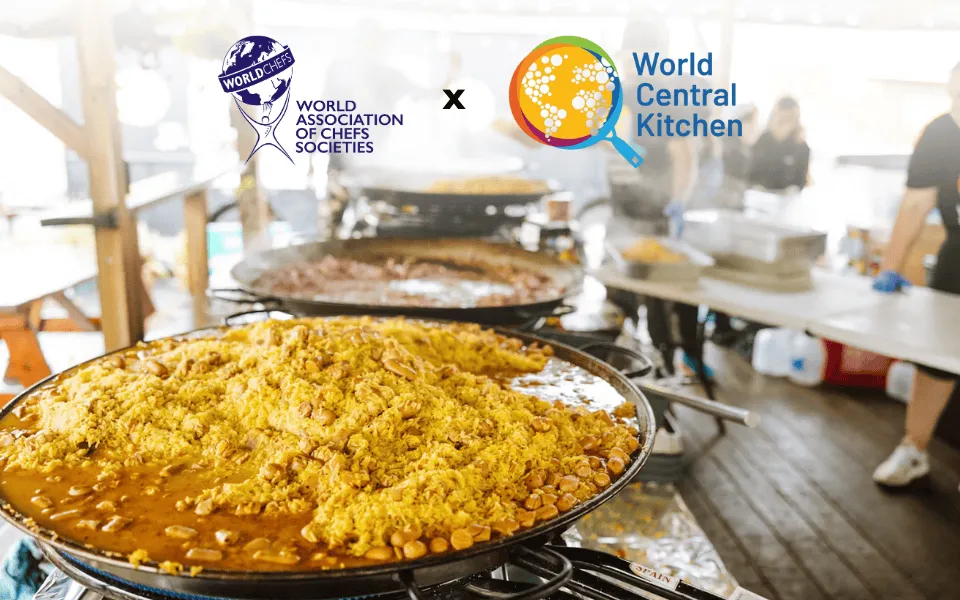

4. Help people make FoodChoices4Life
Another exciting collaboration is coming! The FoodChoices4LIFE project, a European Commission co-funded project by The European Food Information Council (EUFIC), Worldchefs and UNITUS, will be announced soon, with more ways for chefs to drive climate-smart food choices.
From contributing to surveys to organizing educational events for local citizens, the project will offer opportunities for chefs at all levels and different levels of commitment.
Discover more about the program at the 2026 Worldchefs Congress & Expo in Wales, where Dr. Marta Antonelli, Project Coordinator FoodChoices4LIFE at EUFIC will present on “Driving More Sustainable Food Choices in the EU: the Project FoodChoices4LIFE” and how you can get involved.


5. Get inspired by the work of others
For more inspiration on engaging in meaningful collaboration, look to your peers and start asking questions. Here are just a few of many Worldchefs member projects we’ve been inspired by lately:
AMERICAN CULINARY FEDERATION
At the 2025 ACF National Convention in Las Vegas, the American Culinary Federation reaffirmed its commitment to sustainability and community partnership by donating surplus food from the event to local food banks. This initiative not only reduced food waste but also supported families in need throughout the Las Vegas community. As ACF looks ahead to the 2026 National Convention in Grand Rapids, Michigan, this effort represents a legacy the Federation is proud to continue, using the power of food and collaboration to make a lasting impact in every they visit.
NORWEGIAN CHEFS ASSOCIATION
NKL Trondheim, the local chefs association in Norway’s third largest city, is working with the regional authorities of Trøndelag to strengthen food preparedness and pathways in culinary careers.
The project highlights the importance of increasing local food production, developing more regional processing, and encouraging young people to choose food-related education and careers. It also promotes the use of local ingredients in schools, hospitals, and other public institutions, while addressing challenges such as food waste.
With the support of local authorities, NKL Trondheim is raising awareness of how culinary professions can be a part of positive change, collaborating to build a sustainable food system for the region.
SINGAPORE CHEFS ASSOCIATION
The Singapore Chefs’ Association (SCA) is currently collaborating with local fish farmers to promote sustainably farmed seafood and support Singapore’s “30 by 30” food security goal. Through initiatives such as the Offshore Fish Farm Visit, they connect chefs with local producers to raise awareness of self-sustaining seafood sources and encourage the use of locally farmed fish in culinary establishments.

Collaborate for a Food-Secure Future
Change often begins with reaching out, exchanging ideas, and supporting one another’s efforts. When chefs work together with purpose, meaningful change becomes possible in our communities, our industry, and beyond. Together, we can strengthen our impact and move the food industry toward a more sustainable and connected future. Get inspired, ask questions, and make a commitment to working with others on a common goal that matters to you – big or small.
